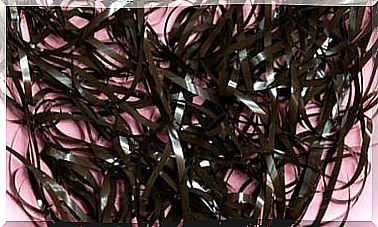Medicinal Plants For Rheumatoid Arthritis
Rheumatoid arthritis affects one in a hundred people, who are forced to take pain relievers and anti-inflammatory drugs. Medicinal plants can be a great natural aid.

Rheumatoid arthritis is an inflammatory disease of the joints, of an autoimmune type, that causes pain, swelling, stiffness and even deformation.
Conventional treatment consists of the administration of analgesic drugs and steroids that are not free of side effects.
The medicinal plants with antiinflammatory properties and regulatory immunity may be helpful, but to completely prevent drug treatment, to the least to reduce doses and to slow the progression of the disease.
3 medicinal plants that help arthritis patients
Many plants and nutritional supplements can help. The positive effects of primrose, borage and currant oils are well known in many people , thanks to their content of gamma-linolenic acid, which favors the body’s production of anti-inflammatory prostaglandins.
A review of Cochrane studies, the world’s most prestigious database of scientific studies for its objectivity, notes that these oils “provide some benefit in relieving the symptoms of rheumatoid arthritis.”
Apart from these oils that are taken in capsule form, herbal medicine offers other possibilities that can be combined.
1. Cat’s claw (Uncaria tomentosa)
Cat’s claw has its origin in the rainforests of South America. Scientists have investigated the anti-inflammatory properties of the plant for its effectiveness in relieving joint pain, swelling, and morning stiffness.
According to a study conducted at the University Hospital of Innsbruck (Austria), 53 percent of people treated with complementary cat’s claw reported a decrease in pain compared to 24 percent of the placebo group.
The Arthritis Foundation of the United States recommends taking a dose of 250 to 350 mg in capsules every day.
Cat’s claw has very few side effects, such as mild digestive discomfort and headaches.
2. Ginger ( Zingiber officinale )
Ginger is a medicinal plant and a common spice that is becoming popular in the West. Its medicinal properties are very broad: it is used to treat from colds and poor digestion to migraines and hypertension.
Its anti-inflammatory effects stand out. One study showed that ginger has the potential to help treat rheumatoid arthritis symptoms. It can also have additional protective effects on the joints.
The fresh root can be found in the markets and can be infused or grated to add it to dishes. You can drink up to four cups of ginger tea a day. It can also be easily found in capsule supplement form.
People taking blood thinners or suffering from gallstones should not take ginger due to the risk of unwanted side effects.
3. Thunder god vine ( Tripterygium wilfordii )
This plant of oriental phytotherapy, native to China, Japan and the Korean peninsula, with a spectacular name, should be used under the supervision of a doctor who specializes in medicinal plants, since overdose can cause potentially serious side effects.
Its use is endorsed by the National Center for Complementary and Integrative Health of the United States, which indicates that the vine of the thunder god can help alleviate the symptoms of rheumatoid arthritis.
A 2014 study in China found that taking the thunder god vine along with the drug methotrexate was better than taking the drug alone.
The dose generally used is 20 to 300 mg of the purified extract of the root. It is imperative that a doctor indicates the appropriate dose and supervises the administration to avoid side effects. It is contraindicated in people with kidney or heart conditions.
Scientific references:
- Melainie Cameron et al. Herbal treatment for rheumatoid arthritis. Cochrane Database of Systematic Reviews.
- Abdullah Al-Nahain et al. Zingiber officinale: A Potential Plant against Rheumatoid Arthritis. Arthritis.









